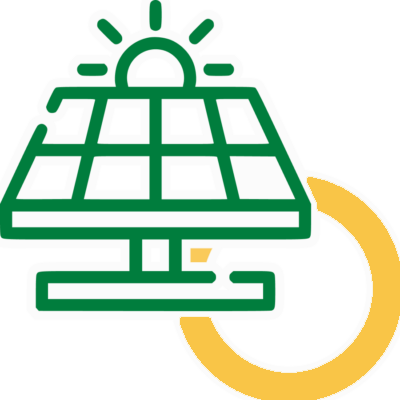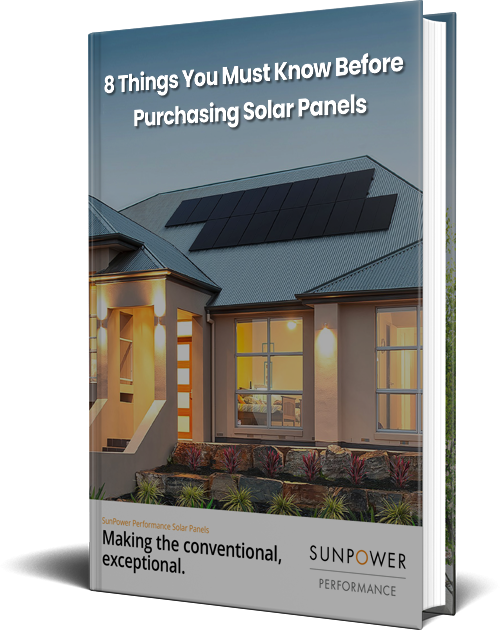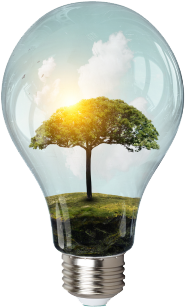
40 Year Warranty
We are Sunpower’s preferred installer, renowned for their industry-leading efficiency.
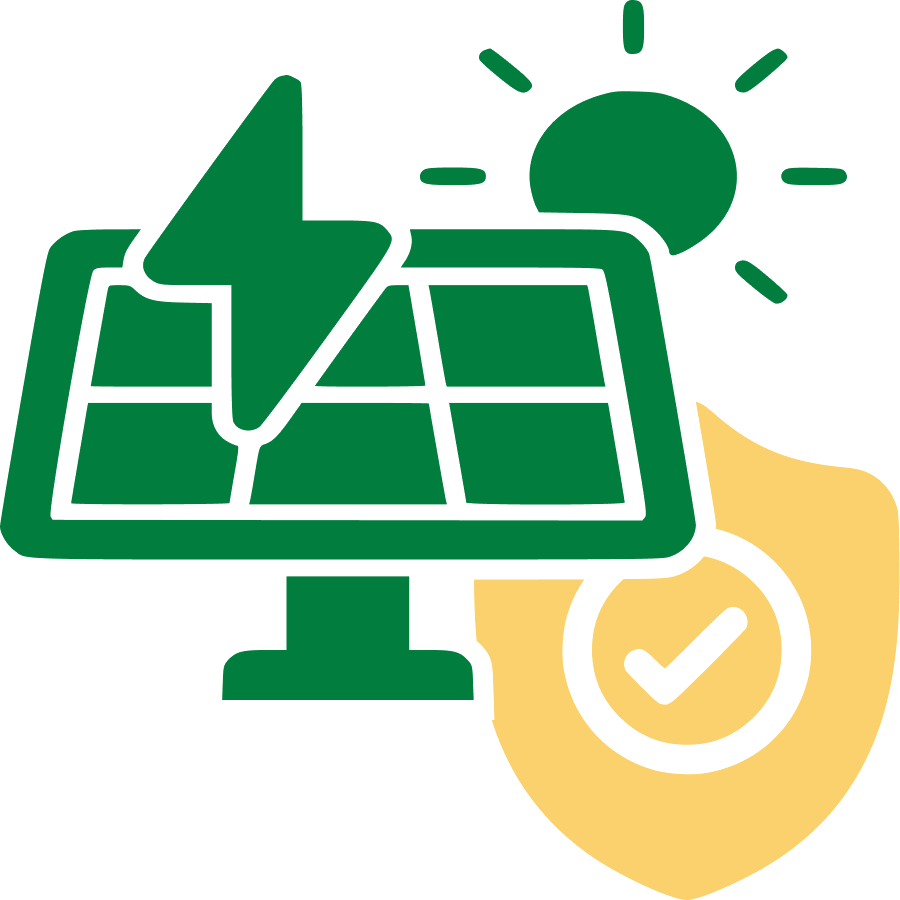
Guaranteed No Slavery Panels
Ethically and responsibly sourced supply chain.

Turbocharged Solar
Greater solar savings with Energy Buster is smarter approach.
Solar Systems
Slash hundreds off your energy bill with powerful 13.3kW solar systems
Wondering what sized solar system is right for your home?
13.3kW solar systems generate an average of 52kWh’s per day, which can help shave hundreds off your power bill and reduce your reliance on the grid.
With 48 high-efficiency solar panels and advanced inverters, this system generates substantial electricity for your home or business. Adelaide’s sunny climate ensures maximum solar energy production, allowing you to enjoy significant savings on your power bills.
Our experienced team of solar experts will handle the entire installation process, ensuring seamless integration with your property.
Take advantage of clean, renewable energy and make a positive impact on the environment while enjoying long-term financial benefits.
Contact us today to learn more about our 13.3kW solar systems in Adelaide.
What are the best types of 13.3kW solar systems
When it comes to choosing the best types of 13.3kW solar systems in Adelaide, there are a few factors to consider. Here are some options to explore:
Monocrystalline Panels: These solar panels are known for their high efficiency and sleek appearance. They are made from a single crystal structure, which allows them to generate more electricity per square metre.
Polycrystalline Panels: These panels are slightly less efficient than monocrystalline panels but are more cost-effective. They have a blue tint and are made from multiple crystal structures.
Hybrid Panels: Hybrid solar panels combine photovoltaic cells with solar thermal technology. They can generate electricity and also capture heat, making them a great option for maximising energy production.
String Inverter Systems: This type of system uses a single inverter to convert the DC electricity from the solar panels into AC electricity for use in your home. It is a common and reliable choice for 13.3kW solar systems.
Microinverter Systems: Microinverters are installed on each individual solar panel, allowing for better monitoring and performance optimisation. They are ideal for installations with shading or multiple roof orientations.
How much does a 13.3kW solar system cost?
The cost can vary depending on several factors, including:
- Brand of panels
- Type of inverters
- Installation complexity
- Any additional features or upgrades
Energy Buster Tip: It’s important to consider the long-term financial benefits of installing a solar system, such as reduced electricity bills, potential feed-in tariffs, and the environmental advantages of using clean, renewable energy. These factors can contribute to a positive return on investment over the lifespan of the system.
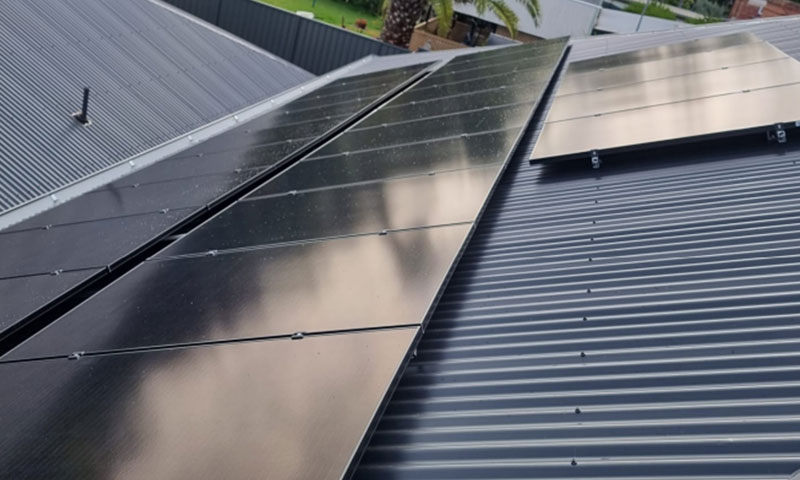
13.3kW solar system benefits
✔ Significant Energy Savings: A 13.3kW system can generate a substantial amount of electricity, reducing your reliance on grid power and leading to significant energy bill savings over time.
✔ Environmental Impact: By using solar energy, you contribute to reducing greenhouse gas emissions and dependence on fossil fuels, helping to mitigate climate change and create a cleaner, greener future.
✔ Government Incentives: Adelaide residents may be eligible for various government incentives, such as solar rebates, feed-in tariffs, and other financial incentives, which can further reduce the upfront costs and enhance the financial viability of solar installations.
✔ Increased Property Value: Solar systems are considered valuable home improvements. Installing a 13.3kW system can potentially increase the resale value of your property, attracting eco-conscious buyers who value sustainable features.
✔ Long-Term Investment: Solar systems have a long lifespan and require minimal maintenance. They offer a reliable, long-term energy solution that can provide financial benefits for 20 to 30 years or more, making them a solid investment.
✔ Energy Independence: Generating your own solar energy allows for greater energy independence and resilience, reducing your vulnerability to rising electricity prices and potential grid outages.
✔ Positive Environmental Image: Adopting solar power demonstrates your commitment to sustainability and environmental responsibility, which can enhance your reputation, both personally and professionally.
What is the installation process for 13.3kw solar systems?
The installation process typically involves the following steps:
Step One: Consultation and Site Assessment
A reputable solar installer will first conduct a consultation to understand your energy needs and evaluate the suitability of your property for a solar installation. They will assess factors such as roof orientation, shading, structural integrity, and electrical infrastructure.
Step Two: Design and System Sizing
Based on the site assessment, the solar installer will design a system that meets your energy requirements. This includes determining the number of panels, inverter capacity, and other components needed for optimal performance.
Step Three: Obtaining Necessary Permits
The installer will handle the necessary paperwork and permits required for the solar system installation, ensuring compliance with local regulations and grid connection requirements.
Step Four: Procurement and Delivery
Once the design is finalised, the solar installer will procure the solar panels, inverters, mounting equipment, and other necessary components. These will be delivered to your property.
Step Five: Installation and Mounting
The solar panels and mounting equipment will be installed on your roof or on a ground-mounted system. This process involves securely attaching the mounting structures and positioning the panels to maximise sunlight exposure.
Step Six: Electrical Wiring and Connection
The solar installer will connect the panels to the inverters and install the necessary electrical wiring to link the system to your property’s electrical distribution board. This ensures the generated solar energy can be used to power your home or business.
Step Seven: Testing and Commissioning
The installer will conduct thorough testing to ensure the solar system is functioning properly and safely. This includes checking electrical connections, inverter performance, and system functionality.
Step Eight: Grid Connection and Net Metering
If applicable, the installer will coordinate with your utility provider to establish the grid connection and install a net metre. This allows for the measurement of energy exported to the grid and the potential for feed-in tariffs or credits.
Step Nine: Monitoring and Handover
The installer may provide you with a monitoring system that allows you to track the performance of your solar system. They will also provide you with all necessary documentation, warranties, and information on system maintenance and operation.

 40 Year Warranty
40 Year Warranty





